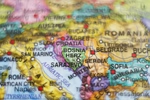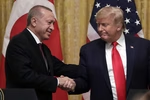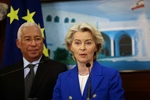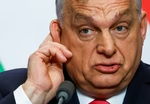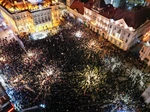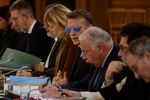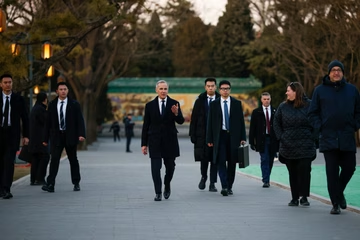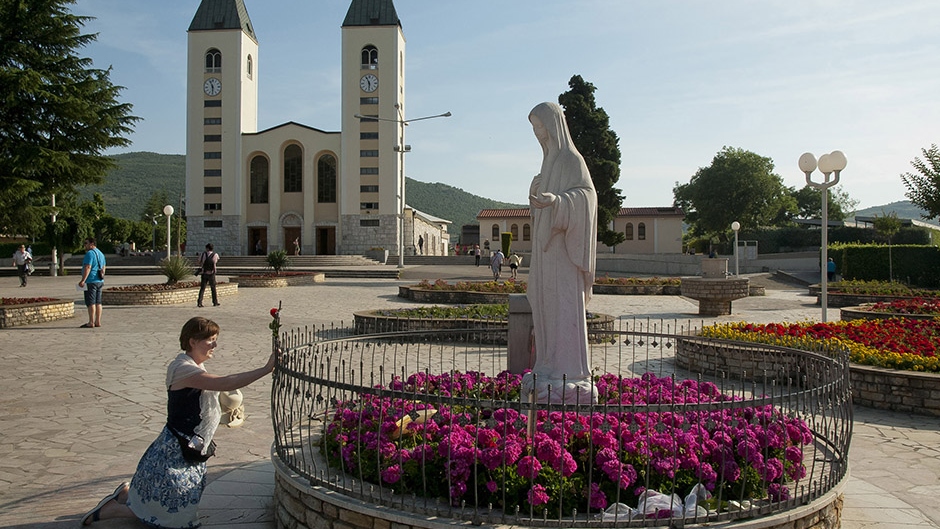
The Vatican has been placed before a fait accompli and it is the task of the Vatican's envoy in Medjugorje to make this sanctuary more transparent, said theologian Dalibor Milas who has been closely following the phenomenon of Medjugorje and the stance of the Vatican on it.
Milas said, carried the Deutsche Welle, that a Medjugorje was not a “place of magic or the instant-miracles” and that someone should tell the pilgrims that the statue of the resurrected Jesus cannot cry from his knee or that the fluorescent Virgin Mary was not a sign from the heaven.
However, he added, “all this is not some kind of an attack on everything that is positive in Medjugorje but a huge anti-advertisement to Medjugorje, which rejects neutral people.”
The south-western Bosnian town of Medjugorje has been visited by millions since 1981 when six local children said they had seen the Virgin Mary on a nearby hill. Some locals said the apparitions have continued since then. These claims have not been verified by the Vatican.
Papal special envoy to Medjugorje, ex-Polish Archbishop Henryk Hoser, conveyed a message prior to his departure from the Warsaw airport and taking over the duty. The mention of “Neapolitan mafia” in his message had the strongest echo.
“In the world where everything is gloomy, the modern youth needs a more resolute approach and clearly defined rules. (…) On one hand, we meet thousands of young people there who use the sacrament of penance and reconciliation. On the other hand, one should be aware that owing to the mass influx of the pilgrims to this place the mafia groups, including the Neapolitan, who count on the profit, are coming there too,” Hoser said.
The archbishop has not communicated with media after his arrival in Medjugorje a week ago. According to the Deutsche Welle, there is an inexplicable veil of mystery as none of the archbishop's associates is willing to publicly say who is the mafia the papal envoy mentioned.
Theologian Milas wrote for Croatia's Express web portal, carried the Deutsche Welle, that the crime is present anywhere where the huge sums of money circulate. “It would be illusory to expect that Medjugorje would be an exception,” he added.
According to him, a stronger engagement of the Vatican is needed to prevent the “inflation of kitsch, myths and the glowing statues.”
In his opinion, Medjugorje has turned into an uncontrolled and unpredictable phenomenon which the Church is trying to “institutionally control” in order to avoid undesired side effects.
“As long as there is a need for Medjugorje, it will exist, regardless of what we may think about it,” the theologian noted, adding that, on the other hand, Medjugorje may become the Vatican's main trump in the clash against “the relativism that is more and more present.”
Hoser's task is, Milas concluded, to make Medjugorje more transparent and make sure that millions of the pilgrims coming here find what they seek for: peace, comfort and relaxation.
Kakvo je tvoje mišljenje o ovome?
Učestvuj u diskusiji ili pročitaj komentare





 Srbija
Srbija
 Hrvatska
Hrvatska
 Slovenija
Slovenija








